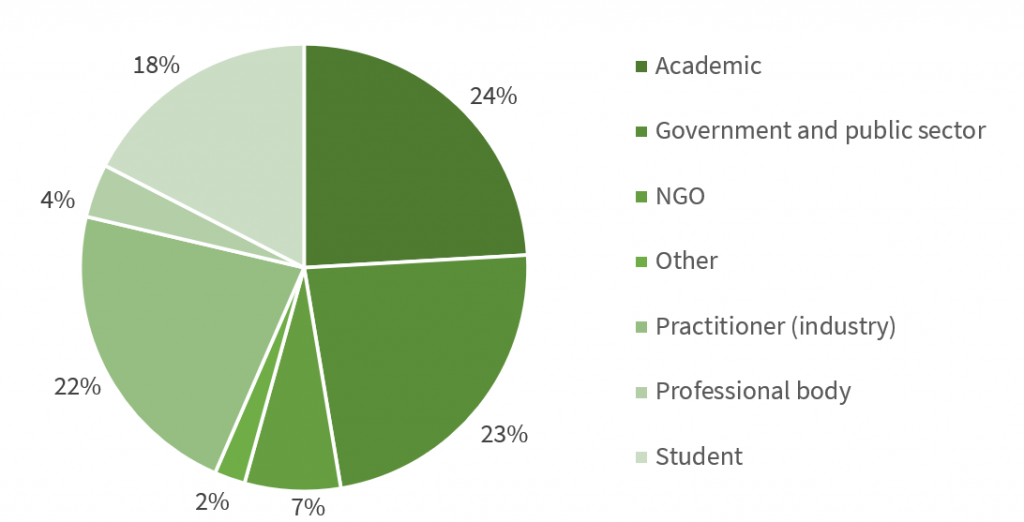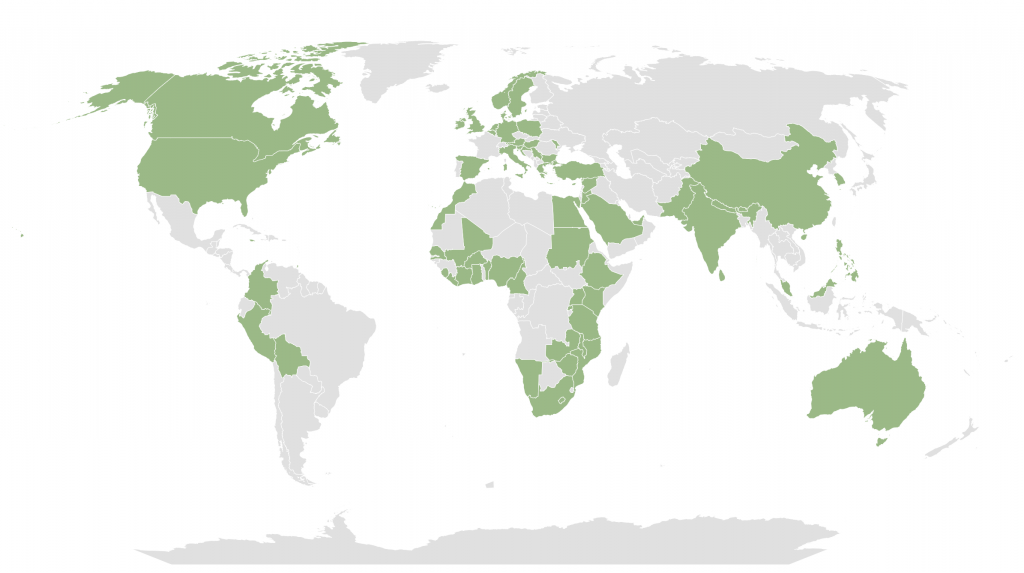3rd International Land Management Conference, 14-15 March 2024
Attendance
This year we hosted close to 40 speakers and some 200 participants from 70 countries including representatives of governments and public bodies from 35 countries, 16 NGOs, 9 professional bodies, academics and students attendees from 78 universities, and countless practitioners.



Conference Themes
Theme 1: Can we build more inclusive and resilient land tenure systems by understanding social value and climate change?
Many land initiatives have focused on the goals of improving tenure security, formalizing land rights, formalizing and registering informal constructions and rights on them, strengthening womens rights through establishing new land policies; legal reform; systematic registration; or building land administration IT systems/infrastructure. While recent pro-poor developments such as the Social Tenure Domain Model (STDM) have extended the ideas of registration to include documentation of other kinds of occupancy, they do not fully address broader understanding of social or climate justice issues. We have tended to assume social value and climate resilience increase as a result of tenure security, but especially with climate change, urbanization and demographic shifts, do we need to look beyond the economic value of improved tenure and consider how climate and social justice concerns can inform the goals of land reforms. This session will consider these questions and advocate for social value and climate risk to be essential considerations of any planned land intervention.
Theme 2: How can land administration systems contribute to efficient and equitable land markets?
Formal real estate markets reflect a substantial share of the national economy of a country and underpin other sectors such as construction, agriculture, and financial services. For individuals, housing and land often represent the single most valuable and important assets they will ever possess. Hence security of title, low transaction costs, transparency, and access to finance are all seen as key to efficient market functioning. Conventionally, much of this is predicated on well-functioning land administration systems with properly registered real estate and a secure system for managing transactions. In many countries, these markets operate quasi-informally with unregistered real estate, reduced tenure security, low level of transparency, limited financial access and limited market depth. How can these markets serve the needs of citizens in an equitable manner? What are the effective land administration systems? To what extent property identification and registration are necessary for such markets? What is the role of institutional investors and how do they shift the power balance in the market? This session will consider both formal and informal real estate markets and how to improve their efficiency.
Theme 3: What approaches can Development Partners use to help achieve more successful Land Administration sector reform?
Land reform processes are notoriously difficult, complex, and fraught with risks of unintended consequences. Most Development Partners (DP) recognize land as a key constraint as well as an enabler for wider development but it can be difficult to find entry points. Initiatives such as the Voluntary Guidelines on Responsible Governance of Tenure (VGGT) have set out aspirational policies that have been quickly endorsed by DP and national governments, yet the implementation has lagged. There has been a great deal of focus on land governance and institutional constraints, however, this does not always filter through to effective intervention on the ground. This session will review and discuss some of the approaches and recent innovations being adopted by DP to identify more effective intervention strategies.
Theme 4: LINK – Early Career Professionals and Junior Researchers – Innovations in Land Research and Practice
This is an open session to encourage early career professionals and junior researchers to present contributions under the theme of innovations in land research and practice of relevance to the land community. Hence, we welcome presentations on both completed and work-in-progress projects and research. Early career professionals and junior researchers will get a chance to present and get feedback on their work from other researchers and practitioners.
Conference Agenda
ILM3 – Conference programme – 20240314 – final
Book of abstracts
ILM3 – Book of abstracts – 20240402
Organizing Committee
Presentations and Recordings
If you have attended the conference all materials are included in the Presentations and recordings section.
Please note that you have to be logged in to view the materials. You can create a free account under the following link: Registration.
